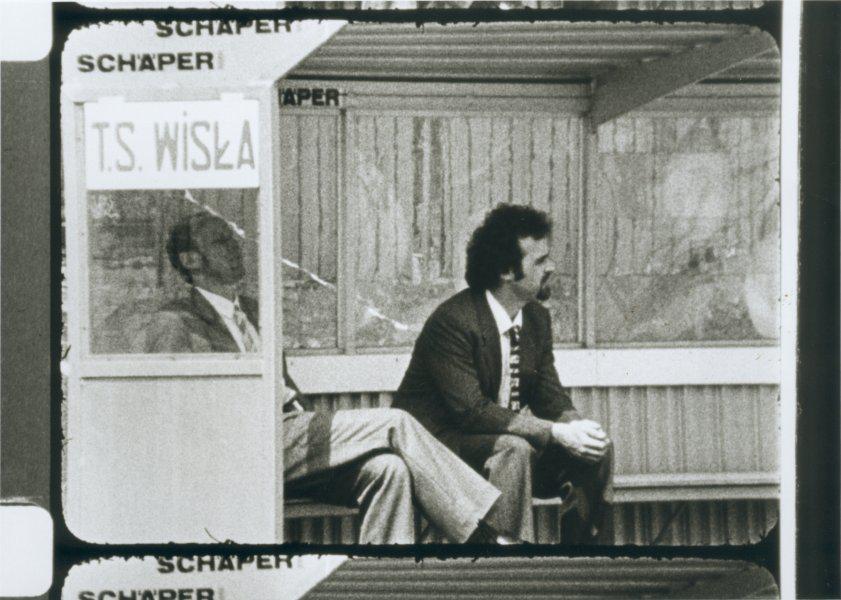Wisla
The passage from the player catacombs out into the arena is narrow and dark. But Josef Dabernig does not show us the perhaps relief bringing expanses through which the trainer and his assistant walk to take their places on the team bench. Italian football fans roar only in off, a Polish stadium disintegrates into depopulated fragments. Only the pan at the beginning of Wisla, showing expanses of grey sky and the tips of satellite town high-rises hints at the enormous circle in which two professionals follow yet another game. It is, as always, the most difficult. Their unfathomable expressions speak volumes about a game which is, naturally, not shown. Now and then the spare, cryptic gestures of members their own team mean something that could, perhaps, be the saving strategy. At any rate, the two protagonists, with the composure of true professionals, accept a handshake of World Championship dimensions - without a team and in an empty grandstand.
Football fans practising virtuality? A real last game, a final, but not in the FIFA sense but rather freely interpreted from Beckett? Wisla could be a filmed comedy sketch, pantomime for a little TV programme. How often have sporting heroes been made to look silly by cabaret artists running amok! Thomas Baumann, in his black and white pictures, is, however, more interested in strange standing-room railings and sparse decaying leisure-time architecture than in jokes. In the not-acting of both Dabernig himself and Martin Kaltner the film approaches the existential lethargy of an Aki Kaurismäki. Without language, but with excellent timing, there is screamingly funny suffering and very sparsely delineated triumph - against the background of an urban no-man´s land far removed from any kind of prescribed national identity.
Thus Wisla is, in many respects, a successful exercise in the art of well-judged abbreviation. Just as the enormous playing field, (which Dabernig really only indicates), preserves its weight irrespective of all its ridiculous blemishes, the film gives a premonition of lavish future productions. One can hope that it will be just as defective, and that it will derive from a cleverly constructed off-sides trap.
(Claus Philipp)
--> WISLA
Wisla
1996
Austria
8 min

